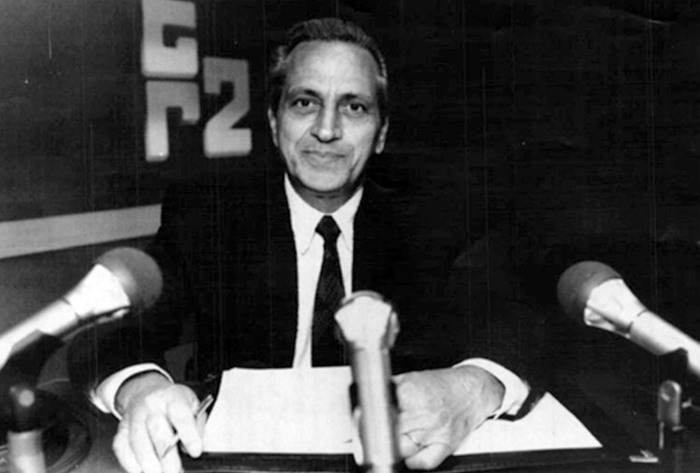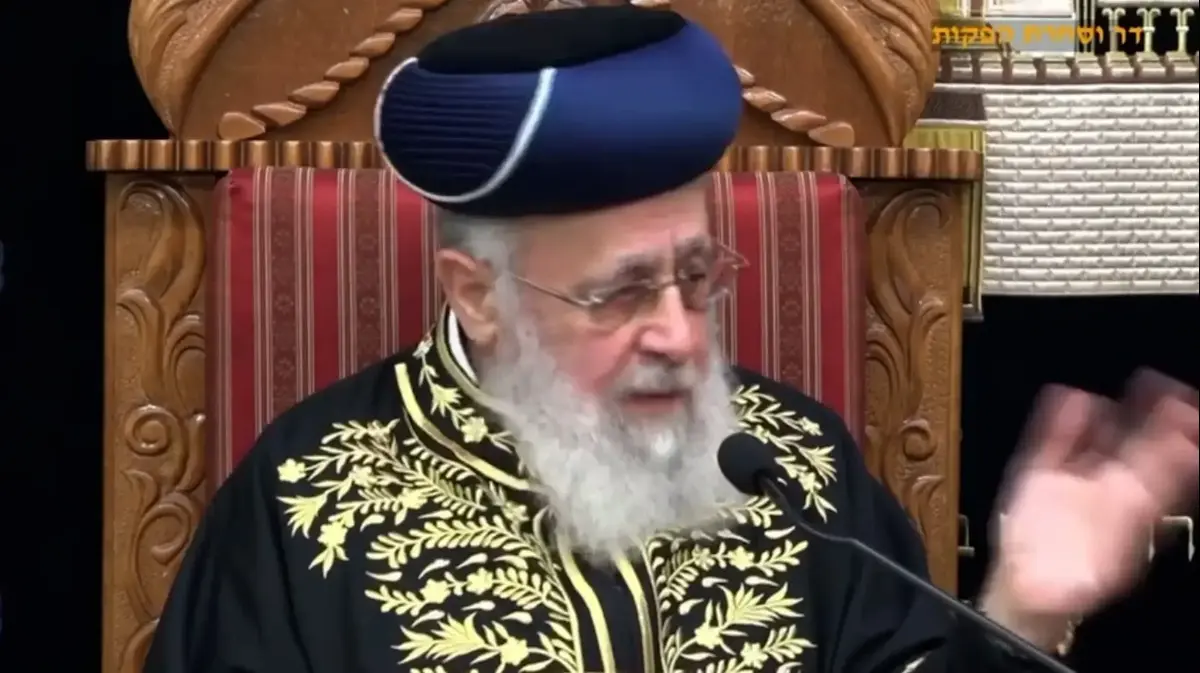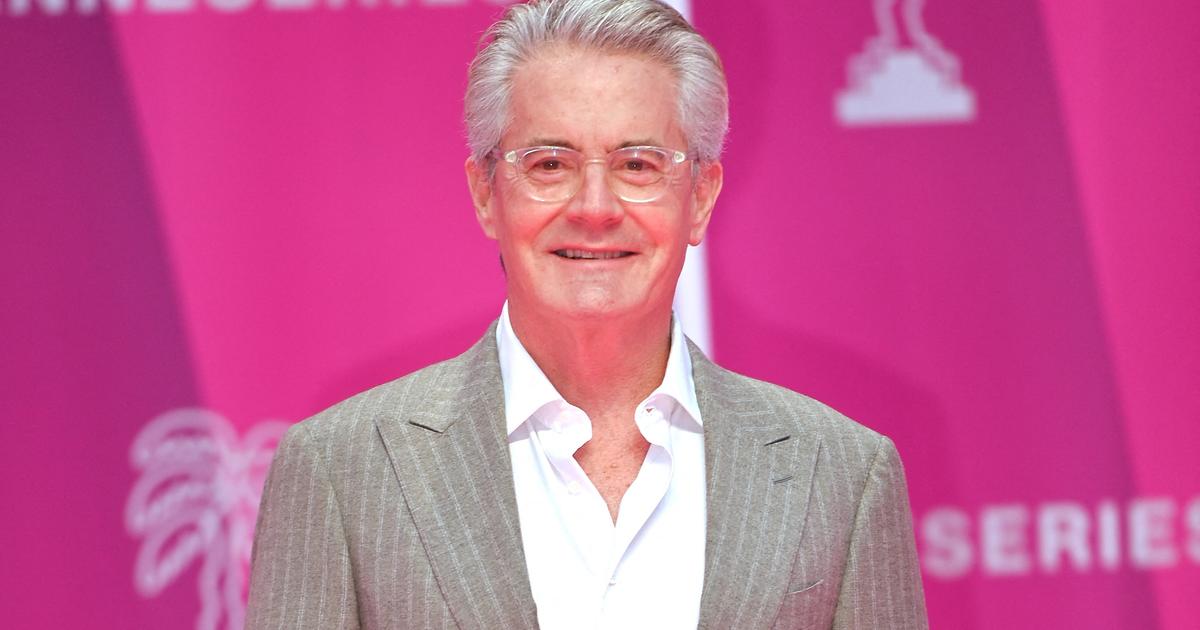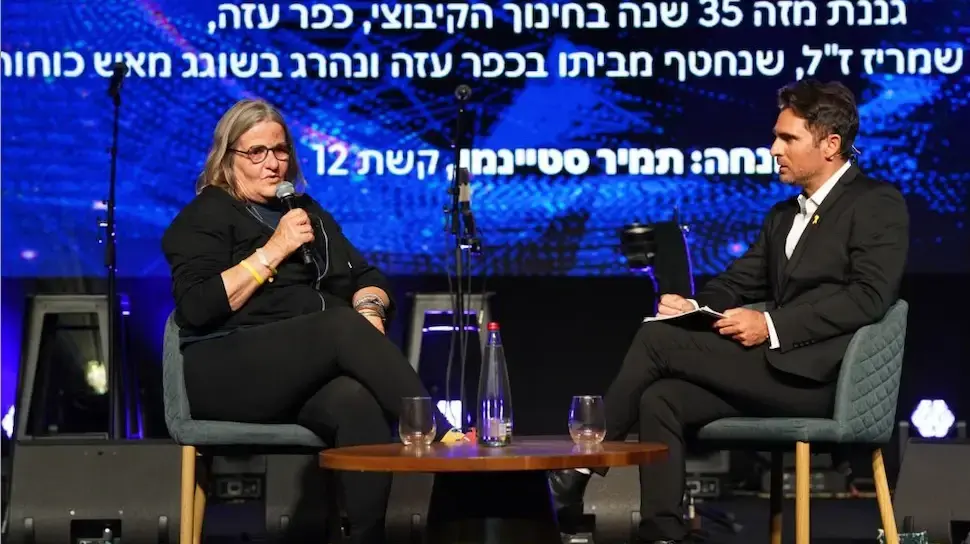culture
TV
Israeli television
"When I was released, I discovered how stupid everything was": the new series that presents the IDF as we have not seen before
The "Headquarters" series, which will air here on the evening of Independence Day, takes place in the crazy world of a training system.
In an interview, creator Atara Frisch tells why the series is similar to "Bad Girls" and not "Beaufort", why the comparisons to "Zero in Human Relations" are irrelevant and why the star Alona Saar is more than Gideon's daughter
Tags
Zero in human relations
Avner Shavit
Monday, 12 April 2021, 00:00 Updated: 09:34
Share on Facebook
Share on WhatsApp
Share on general
Share on general
Share on Twitter
Share on Email
Daniel Salomon Solomon Dana Adini The Great Duet Parade ...
Documentation: MK Ofer Kasif was attacked by police during a demonstration ...
Q: Into the storm
Yossi Sheetrit Chef Games
Anna Aronov Network 13
Thunder force
Women of the Never (The Nevers)
The Soviet version of the Lord of the Rings
Ati Schulberg Iggy Waxman Word Games
Were defeated
Promo for the series "The Commander" (here 11)
The Israeli Independence Day canon includes quite a few series and films, many of which take place in a military setting.
Almost all of them were directed and written by men, and almost all of them have soldiers at the center of the plot.
The only exception that has managed to join the canon is, of course, "Zero in Human Relations," but as of today he is no longer alone.
On the eve of the holiday, 11 will broadcast here the first episode of "The Command", which rewrites the rules regarding the representation of the IDF on screen.
The series was written (together with Nir Berger) by Atara Frisch, and she also directed it. Human ", here too the scene is a distant military base, and again this time almost all the main characters are women - in fact, there is no scene, and there is hardly a single frame, in which there is not a single woman at least. The difference is that this time the heroines are not junior soldiers. Paper. In this case, as the name of the series implies, they command.
Frisch, I will note by the way, was a student of mine in the film department, and to this day I remember the impeccable tests she wrote. Before that she served five years in the IDF, the IDF training system. .
"A real question it?" she says with amusement when I wonder what really made the army. "I thought it was written on my forehead.
Glad to find out no.
So yeah, I served there for five years where I was a platoon commander, lieutenant colonel, lieutenant colonel, novice lieutenant colonel.
Long enough to think I'm doing the most important thing in the world, and then discover in one moment, when I was released, how dumb everything was.
"I think this series is my way of forgiving myself and telling myself, that overall I was cute and not terrible that I was so poisoned, it's probably part of the age. Anyway, I wasted no time. Here, I made a series about it."
More on Walla!
"I should have let someone else answer the question": The series that is having a hard time overcoming the scandal
To the full article
"I was in the IDF long enough to think that I was doing the most important thing in the world." From "The Command" (Photo: Vered Adir)
This series follows an officer named Noa, who serves in the heart of a negligible base somewhere in Israel.
Following a series of circumstances, she is immortalized in command of a recruiting department, which turns out to be a particularly sensitive cycle - most came from problematic backgrounds and refuse to accept her and the sergeant's conversions and beatings beneath her. There are those who threaten to cut off one of the soldiers joint swimsuit not hesitate to intimidate even the headquarters itself. the protagonist refuses to give up. she is played by Alona Saar, actress its presence there is peace of mind built-rare, and it turns out to rock a constant state of sanity versus insanity this exposes course the absurdity of military experience.
just checked And the only country besides us with compulsory service for women is North Korea. What do you think the army has done to the status of women in Israel over the years, for better or worse?
"The commander's figure is a kind of costume in the first place, and this costume was created over the years for men.
When we as women in the IDF are asked to put on the figure of the commander, it is actually a kind of double disguise. I am a commander, but I am also a woman. In advance, it is not 'sewn' for me. From this very connection, questions of gender, of power relations, of "The complexity you are asking about is, to me, a built-in part of the series, and it is part of what attracted me to this world. I wanted to raise the question - how was a kingdom of women established in such a masculine place, and how does it affect their entire environment?"
Its time.
Atara Frisch (Photo: Naomi Maroz)
As a film student, she is required to watch quite a few Israeli films about the army, all with a masculine look, with male characters.
What did you think of them in real time, what do you think of them now, and how do you position the "commander" in relation to them.
"It's a seminar paper? Because I'm not sure I can write such a thing yet. Look, I do not know how to tell you that, but I do not think 'Commander' is a series about an army. Yes, it takes place in the army, but it's mostly its setting. To me, this is a story about adolescence of girls, about women's friendships, about aspirations, about power struggles. I'm sorry, but there is not much connection between the army films made in Israel and our series. Bad girls' more than with 'Beaufort'. "
Do not kill me, but I had a question up my sleeve about "zero in human relations", and it seems to me that this is a box that must be marked V.
It is true that the connection between the works is minor, but the comparisons are inevitable.
"The truth is that it is neither this nor that. 'Zero in Human Relations' is a great work that I really enjoyed watching, but with the exception of military uniforms in the women's sector, I do not see a connection. "This is a certificate of poverty for the poverty of this representation."
No questions about "Zero in Human Relations".
Or about Gideon Saar.
Alona Saar in "The Headquarters" (Photo: Vered Adir)
In addition to the fact that almost all the main characters are women, diversity can be found in the series from other directions as well.
She has Ashkenazi and Mizrahi female soldiers, some of Russian descent and some of Ethiopian descent, as well as a not particularly thin female soldier, who is the only one involved in a sex scene and reveals intimate parts of her body, at least in the first four episodes I saw.
"Are representation questions important to me? They are very important to me. Very very important to me," Frisch says in this regard.
"My and Nir Berger's ambition was to be as accurate as possible - from the dialogues, with nuances like 'Paznikit' and 'Bouncing the GS' to designing the offices and tents, and of course casting. We wanted to get as close as possible to the world from which the story originated, and in this world "It has everything. A great evening of representations and colors and backgrounds. It was important to us that all this would be shouted from the screen."
The characters and most of the actresses are one generation behind you.
How much has military service, for women and in general, changed since then?
How did Nir and you keep your finger on the pulse, for example when it comes to language ("check" and more)?
"We may look like thirty-plus-year-olds, but deep down we are two teenagers who are infested with Insta. The transitions were not as sharp as they seem. And we also had a series of beatings and former radars that helped us hone the latest terms and concepts for contemporary sickness training." .
Only one thing is missing in the series - Arabs and Arab women.
The conflict, the reason there is an army at all, is not mentioned, at least not in the first four chapters.
Is it still in the background for you?
"On the one hand, it's hard to see the series and not hear its critical tone. On the other hand, if you look for the conflict in it, you will not find. What will you find? What is perhaps the most esoteric array in the IDF, farthest from the 'core' of Doing, farthest from the conflict.
He trains thousands of recruits a year, but in the military hierarchy he is at the bottom of the list of priorities.
This is the story we wanted to tell - about a parallel world where you have to fight on the A4 and hide toilet papers in a safe. "
A great discovery.
Lear Katz in "The Headquarters" (Photo: Vered Adir)
The series has a wide variety of characters, so its casting is rich - and excellent.
His best-known name is Mia Dagan, but she plays a small role.
Among the young female soldiers, the best-known actress is perhaps Mia Landsman, who recently shone in another 11-here series, "Rehearsals."
Alongside her can be found young and excellent actresses who were hitherto known mainly to the well-wishers, for example Lear Katz and Noa Astangelov.
Alona Saar, who plays the protagonist, has been known so far for her appearances in the youth series "Palmach", and also because of the identity of her father, Gideon Saar.
The Israeli media, which is compulsive and petty in general and in matters of family pedigree in particular, likes to harass her on the subject.
This past weekend, for example, an interview was published with her that ninety percent of it was devoted to her family, and ten percent (perhaps, barely) to the series.
My bet: in light of the actress' skills, and the promise inherent in, in twenty years she will no longer be "Gideon Saar's daughter."
Gideon Saar will be her father.
"Alona is a great gift given to me in this project," Frisch says.
"From the first moment she entered the room of the band Hila Yuval, it was pretty clear that this role was hers. I do not think I could understand then how talented she is, but yes I immediately realized how suitable she is.
" Noa's role is a role we feared, it was clear to us That this is a character that will be difficult for some people to connect with.
Alona, with her charm and sensitivity, manages to glide through the weird and detached parts of the character in a way that just melts your heart.
I'm waiting for everyone to see that she's an exemplary actress, with the nuances and technique of a fifty - year - old actress, and will stop talking to me about her dad.
I have such an interest that I develop maternal feelings towards my actresses, they just become my childhood, they are the best, the most talented, the most beautiful, and whoever says something bad about them - I will break it down. "
Besides Alona Saar, I have another good clickbait: in episodes The first have several shower scenes. Why does the shower take up such a central place?
"Showers are among the most memorable experiences for women in their internships.
It's hard to forget this moment, the common nudity, the jeep in the canal, the flip-flops, the swimsuit issue.
For me it is a super traumatic memory, I did not expose my body in this way before and suddenly, under the auspices of the IDF, we are commanded to undress in public and feel great. This is a tough moment, so it had to be on screen for me. "
"If anyone says anything bad about my actresses, I will break it down."
Atara Frisch (Photo: Naomi Maroz)
As part of her studies, Frisch directed the excellent short film "A Love Letter to My Act", which was screened at the Tribeca Festival, among others. She then successfully directed the International Student Festival in Tel Aviv. She worked on creating "The Headquarters" for several years, and finally came The time to photograph it, the corona came too.
"I took the plague in person," says the creator. "I thought the corona came to destroy my first opportunity in the industry.
Shooting during the second closure, between tests and isolation, was an abnormal nightmare, but also a nurturing and empowering experience.
Producers Saar Yogev and Naomi Lavari managed to get us to the finish line against all odds, and my bulldozer partner is also an integral part of the success. "
With and without Corona, the production faced many challenges - how to shoot ninety extras during the plague, or what to do when there are problems with The addition of the star two days before the filming. But in the end, says Frisch, the most difficult challenge was to choose a name for the series. At first, she was called "Yes MM", but in the end it was decided on the headquarters.
"It was a torturous process," the creator concludes.
"In the end we distilled it to the simplest name possible."
How do you define the series - comedy?
drama?
How hard was it to combine drama and comedy?
"The truth? I wonder what the viewers will think. I treated this text first and foremost as a drama, and in order for it to permeate people's hearts better, then it's also funny, and if it's funny, it's at all that the military world is so absurd. is nothing".
"I took the corona personally - an epidemic that came to ruin my career."
From "The Headquarters" (Photo: Vered Adir)
Like any Israeli series, "The Headquarters" will be marketed abroad. What do you think is universal about it and how do viewers who have never been or will be in the army connect to it?
"It is absurd for me to think about sales abroad at the moment, but I have a simple answer about universality. "Universal in the series? Everything. This is not a series about the army at all, this is a series about women, and women is a universal thing, at least the last time I checked."
If the series could convey one message to pre-recruitment 17-year-old Israeli girls, what would you like it to be?
"Bring flip-flops to the showers. And seriously, my message is - 'everything's playing, I think that's a good message. And add a hug emoji too. Because I want to hug these girls and tell them it's really okay, no matter what they do." .
Share on Facebook
Share on WhatsApp
Share on general
Share on general
Share on Twitter
Share on Email


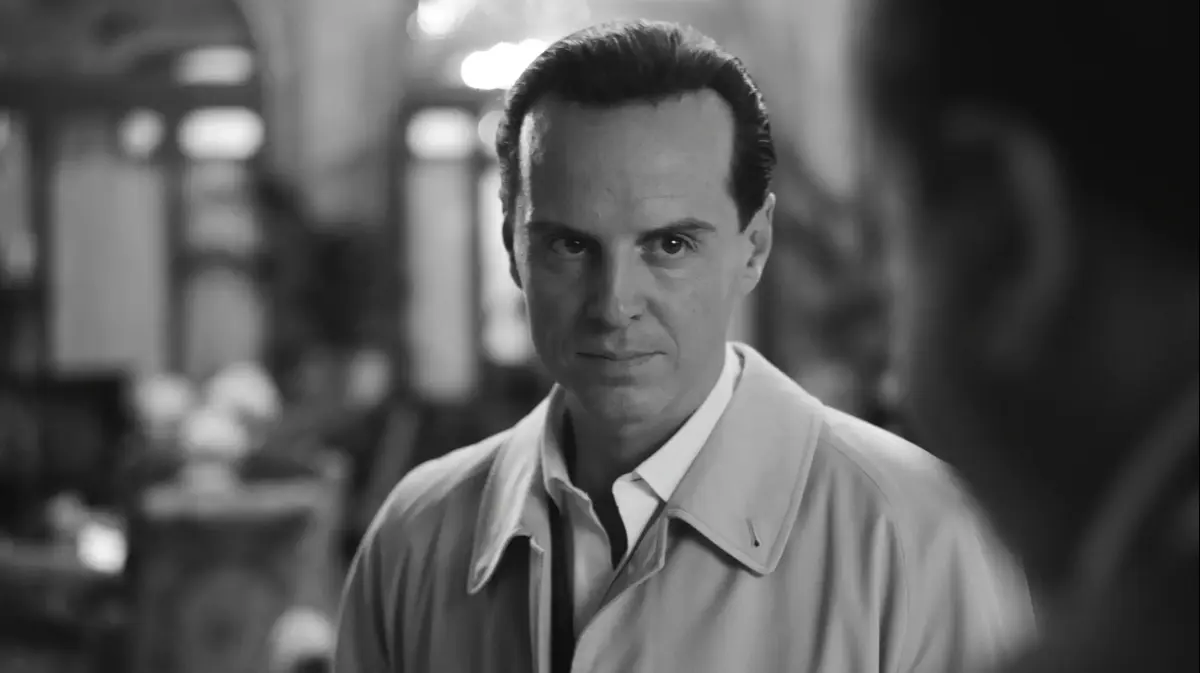
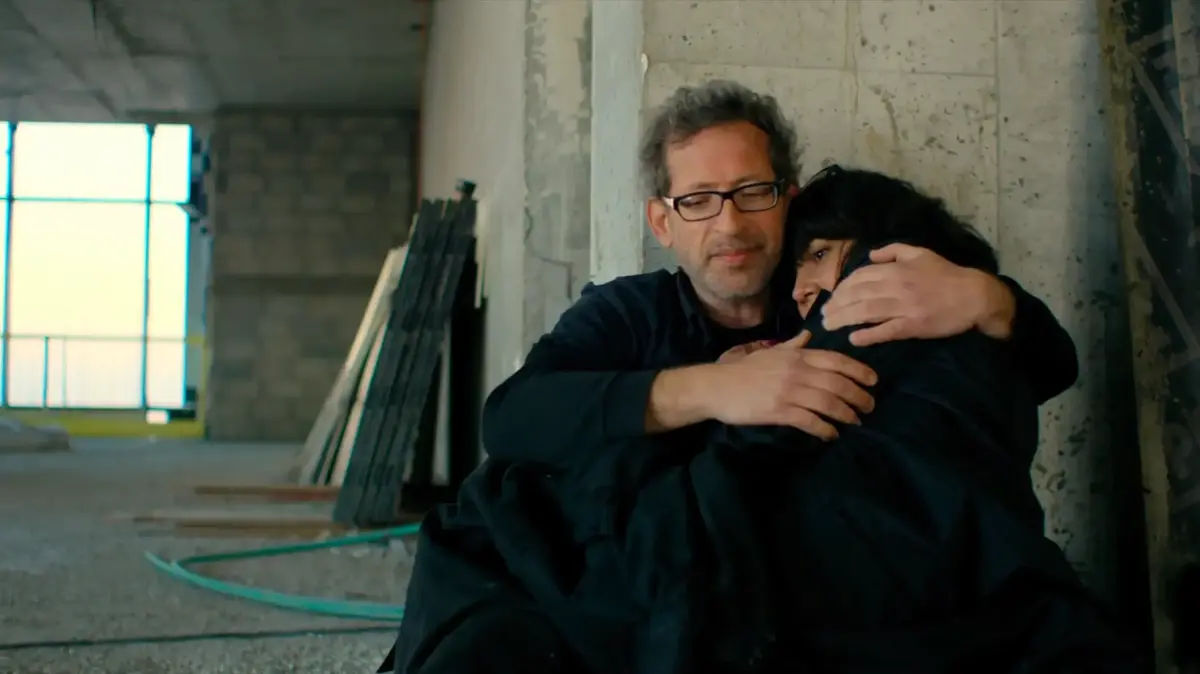
/cloudfront-eu-central-1.images.arcpublishing.com/prisa/MKA7DYZMDZECTCMZXQEAEUDL4E.jpg)
